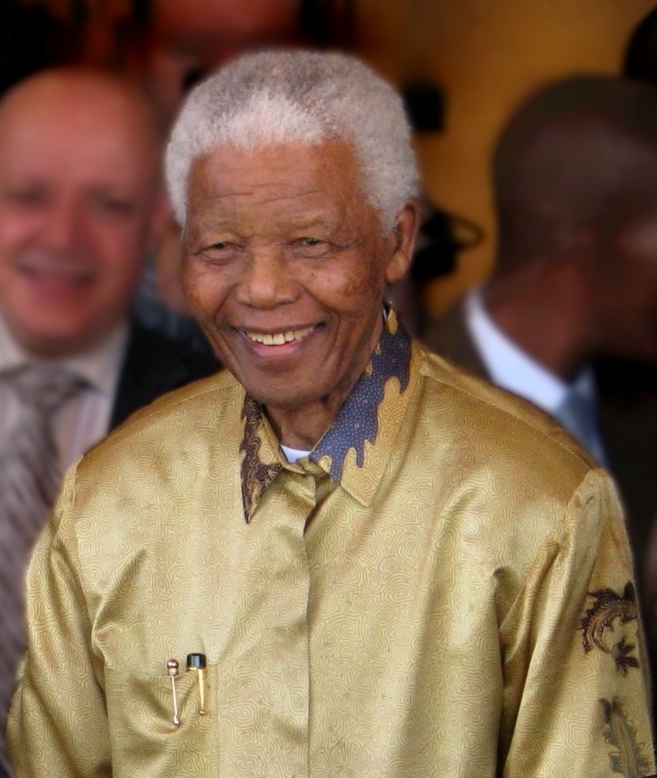A
Xhosa born to the
Thembu royal family, Mandela attended the
Fort Hare University and the
University of Witwatersrand, where he studied law. Living in
Johannesburg, he became involved in
anti-colonial politics, joining the ANC and becoming a founding member of its
Youth League. After the
South African National Party came to power in 1948, he rose to prominence in the ANC's 1952
Defiance Campaign, was appointed superintendent of the organisation's
Transvaal chapter and presided over the 1955
Congress of the People. Working as a lawyer, he was repeatedly arrested for seditious activities and, with the ANC leadership, was unsuccessfully prosecuted in the
Treason Trial from 1956 to 1961. Influenced by
Marxism, he secretly joined the
South African Communist Party (SACP) and sat on its Central Committee. Although initially committed to non-violent protest, in association with the SACP he co-founded the militant
Umkhonto we Sizwe (MK) in 1961, leading a
sabotage campaign against the apartheid government. In 1962, he was arrested, convicted of conspiracy to overthrow the state, and sentenced to life imprisonment in the
Rivonia Trial.
Mandela served over 27 years in prison, initially on
Robben Island, and later in
Pollsmoor Prison and
Victor Verster Prison. An international campaign lobbied for his release. He was released in 1990, during a time of escalating civil strife. Mandela joined negotiations with President
F. W. de Klerk to abolish apartheid and establish
multiracial elections in 1994, in which he led the ANC to victory and became South Africa's first black president. He published
his autobiography in 1995. During his tenure in the
Government of National Unity he invited several other political parties to join the cabinet. As agreed to during the
negotiations to end apartheid in South Africa, he promulgated a
new constitution. He also created the
Truth and Reconciliation Commission to investigate past
human rights abuses. While continuing the former government's
liberal economic policy, his administration also introduced measures to encourage
land reform, combat poverty, and expand healthcare services. Internationally, he acted as mediator between Libya and the United Kingdom in the
Pan Am Flight 103 bombing trial, and oversaw
military intervention in Lesotho. He declined to run for a second term, and was succeeded by his deputy,
Thabo Mbeki. Mandela became an elder statesman, focusing on charitable work in combating poverty and
HIV/AIDS through the Nelson Mandela Foundation.
Reference site
http://en.wikipedia.org/wiki/Nelson_Mandela







